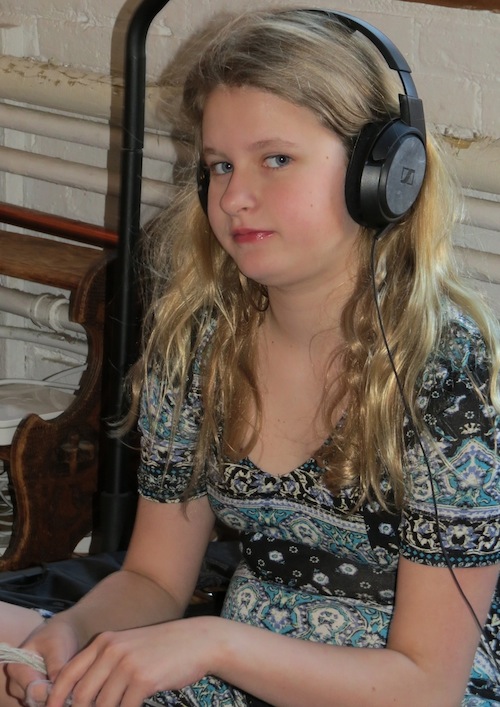The other day I read a wonderful piece of advice written by Rina, a friend of mine, who is Autistic. Rina’s thoughts were what I wish I’d been told when Emma was first diagnosed, so I asked Rina if I could share them and she, very generously, gave me permission. Rina’s words also reminded me of Kamila and Henry Markram’s Intense World Theory for Autism, which was the first “theory” I read that finally made any sense to me or even remotely reflected back what I was seeing in my child.
Rina told me she self-diagnosed early in 2007 after reading “The Curious Incident of the Dog in the Night-Time and was formally diagnosed in 2009. Rina wrote, “…knowing this about myself has been the revelation of my life. I am exponentially happier, healthier, and more confident since learning this about myself. Now I understand myself!” A little later as we were discussing this post, Rina said, “I was over 40 when I discovered I was autistic, so I spent a large part of my life just thinking I was broken, weird, wrong…” Then she wrote, “I was bullied terribly in public school, like most of our tribe, it demolished my self-esteem, I was depressed and suicidal…but not now. I am autistic and proud, awesome and I know it!”
I read Rina’s advice to parents to Emma before posting here. Emma typed, “It nicely states what is important.” So with that endorsement, here you go and thank you Rina for allowing me to reprint your words.
“You know what? I have lots of thoughts, and I’ve had them for a while, about what I’d like to tell parents of newly-diagnosed autistic children. Maybe I’m talking out of my ass. But this is what I’d tell them. (assuming a boy in this example, for ease of writing…)
Your child is autistic. His brain is wired differently than yours. Autism is a disability. He will have challenges, but with the proper supports, he will have a happy, healthy, fulfilling life.
He will follow his own developmental schedule. Ignore the usual “markers”. Throw them out the window. They will be of no use to you.
Try to remember, always, that your son is experiencing the world in far more detail, and with far more intensity, than you are. It will take a lot of time for him to learn to regulate sensory input. His experience of the world (meaning sights, smells, sounds, peoples’ energy, conversation, others’ expectations of him) will overwhelm him on a daily basis. Have compassion for your son. He will be unlike any other child, even any other autistic child. If you pay close attention, with a compassionate open mind, he will tell you what he needs.
There are four things that can be of most help to your son, especially while he is very young: quiet, calm, consistency, and comfort. More than any recommended (and expensive) therapies, these will be of most help to your son. He may have repetitive and/or sensory-rich behaviors, such as rocking, squeezing a favorite toy, repeating favorite words–these help him to find some order in the chaos of the world–if they do not harm him or others, please allow him these behaviors, no questions asked. If they embarrass you–well, quite honestly, that’s your problem and you need to find a way to deal with it.
If your son is nonverbal or semi-verbal, trust me that he is looking for ways to communicate with you. Behavior *is* communication. If there is behavior that upsets you, that seems tantrum-like, there are probably reasons in the environment, there are things that are causing your son pain–again: try to make his world quiet, calm, consistent, and comfortable.
Consistency: I cannot emphasize how important this is. If days cannot be consistent, give your son warning whenever something unexpected is going to happen. I am an adult, and it is still one of my stated accommodations that I need a head’s up whenever something new comes along, or I need a break so I can process the change. If you’re planning to take him along to his sibling’s baseball practice, to stop by a friend’s house, to go to a yard sale, whatever…plan in advance, tell him about it, tell him what to expect and how long it will last. You know what, I think this is common courtesy. Understand what your son needs and be courteous by giving it to him!”





